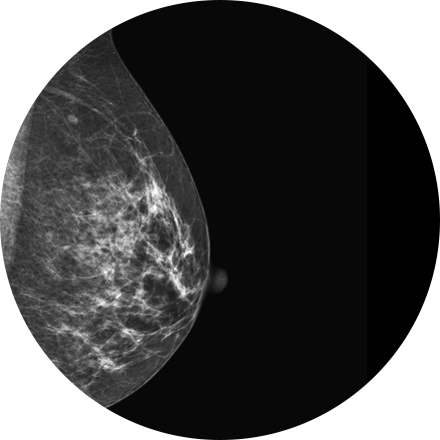
What is mammography?
Mammography is a type of low-dose X-ray of the breast. It reveals masses and micro-calcifications within and around the breast that may indicate breast problems including, but not just limited to cancer.
We use digital mammography at all of our sites, which delivers substantial advantages to you and to your provider:
Higher quality images than traditional film.
Reduces the number of retakes and repeat procedures.
Less time spent in the exam room (an average of seven minutes for the procedure).
Faster communication of results to your referring provider.
Easy, secure sharing with some of the most qualified women’s imaging specialists in the country.
More refined detection tools, such as computer-aided diagnosis (CAD).
Greater accuracy, with image enhancement algorithms that make abnormalities in dense tissue more clear.
When is it used?
Experts recommend a mammography screening of the breasts at regular intervals to increase the chance of early cancer detection and treatment. The American College of Radiology recommends women aged 40 and older should have a screening mammogram every year and should continue to do so for as long as they are in good health.
What happens during a mammogram procedure?
In the exam room, the technologist will position you standing at the mammography machine and place your breast over the receptor. The machine applies moderate compression to your breast for a few seconds to obtain the clearest image. Two X-ray views are usually taken of each breast with a digital mammogram. You will be able to communicate with thetechnologist during the procedure.
The technologist will view your images on the computer screen in the room, only to assess the image quality.
You can leave immediately and resume normal activities.
What are the benefits and risks?
For nearly 50 years, mammography has been the most common imaging tool used in the detection of breast cancer. Breast cancer deaths have declined significantly since 1990, and studies show two-thirds of that decline is due to mammography screening. The amount of radiation exposure is below government standards, so risks are extremely low.
